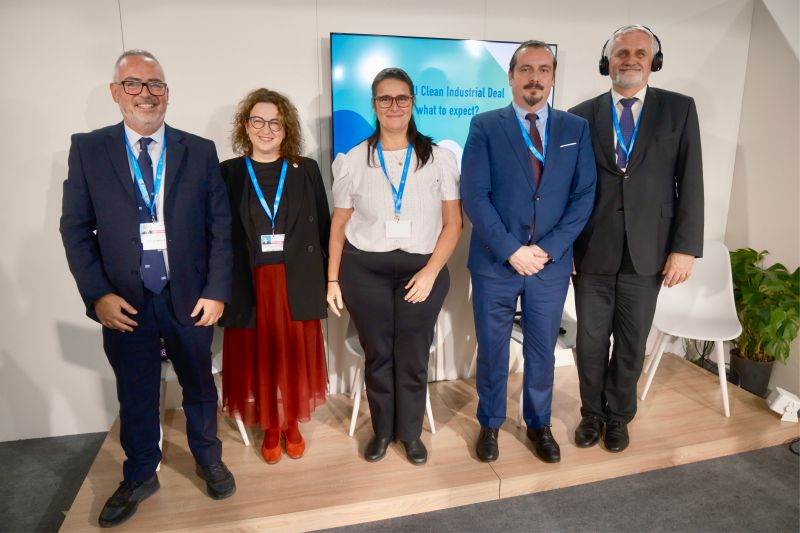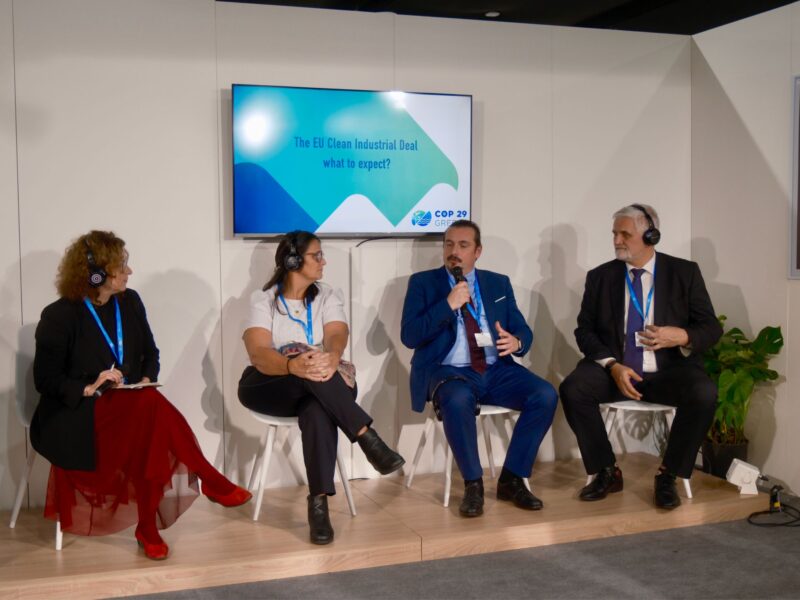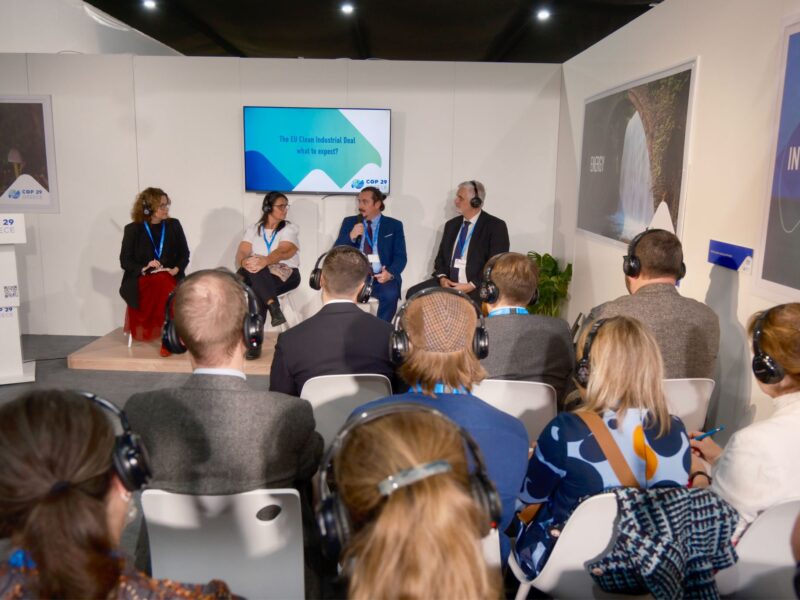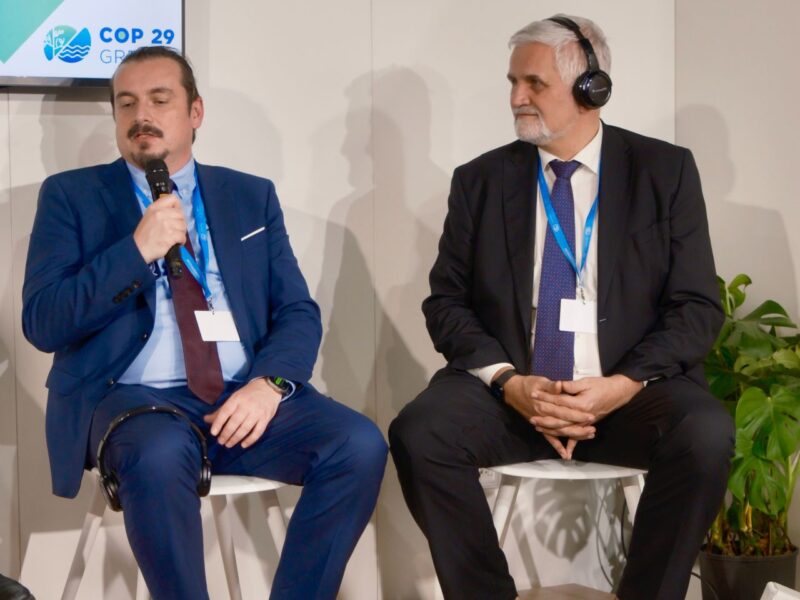CAKE on III side event at COP29 in Greek Pavilion
On Friday 15 November 2024, CAKE participated in the III side event organised by Forum Energii “The EU Clean Industrial Deal – what to expect?” in the Greek Pavilion. This was another opportunity to present CAKE’s views at COP29, based on the work and analysis of the LIFE VIIEW 20250 project.
The centrepiece of the event was a panel discussion chaired by Joanna Pandera, President of Forum Energii, with high-profile speakers Jan Dusík, Deputy Director General, DG CLIMA, European Commission, Rosana Santos, Executive Director in E+, Brazil, and Robert Jeszke, CEO of the National Centre for Emissions Management (KOBiZE) and The Centre for Climate and Energy Analyses (CAKE) and Deputy Director for Emissions Management of the Institute of Environmental Protection -National Research Institute (IOŚ-PIB).
Speakers noted that while the current global geopolitical situation is undoubtedly influencing climate policy and negotiations, it is moving forward and we can see a number of policy developments around the world. “EU emissions are falling, so we are on the right track. And we still need to be ambitious, there is no other starting point” – said Jan Dusík. We should do it in a smart way – he added.
Robert Jeszke went on to explain how climate change policy can evolve. He emphasised the importance of linking climate policies globally, including carbon pricing mechanisms, and responded to concerns raised during the discussion on CBAM by saying that it is actually a temporary solution and that we can already see a number of carbon pricing mechanisms being developed around the world. It seems that CBAM could be one of the drivers.
In this context, it was great to hear from Rosana Santos that Brazil has just passed a law to set up an emissions trading scheme and that it is drawing on European experience. However, we should take into account the diversity of countries and regions – in Brazil, 75% of emissions come from deforestation and agriculture, so policy measures should be prioritised in a slightly different way than in the European Union and other developed countries – she added.
Robert Jeszke also reflected on Poland’s Presidency of the Council of the European Union next year, pointing out the particularly difficult situation due to the war in Ukraine, as well as the different circumstances in member states regarding energy transition, including sensitivity to energy prices and other burdens in society. In particular, policymakers should pay careful and responsible attention to vulnerable groups, especially regarding energy affordability. Another challenge is to mobilise private capital, as the investment needs for the energy transition are overwhelming, fostering investments in RES and storage, supplemented with nuclear energy.
Whatever difficult issues and challenges were raised during the discussion, there was a sense of determination to move forward together towards climate neutrality.
Thank you to the distinguished speakers for their inspiring speeches, to Joanna Pandera for moderating, and to Greece at COP for hosting the event in its pavilion.
Back

 Reset ustawień
Reset ustawień Kontrast
Kontrast Widok
Widok Czytelność
Czytelność Czcionka
Czcionka Znaki
Znaki Interlinia
Interlinia Słowa
Słowa Akapity
Akapity Deklaracja dostępności
Deklaracja dostępności













